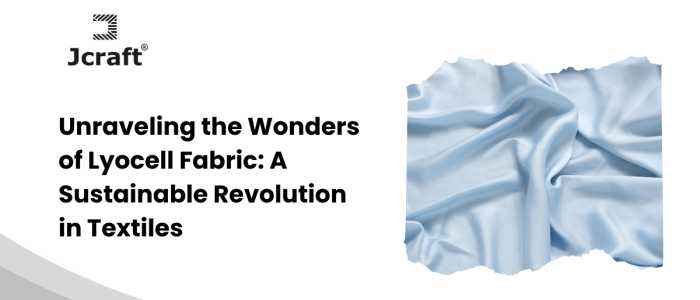Unraveling the Wonders of Lyocell Fabric: A Sustainable Revoluti

In the ever-evolving world of sustainable fashion, one fabric has been gaining widespread recognition for its eco-friendly properties and luxurious feel – Lyocell. This revolutionary textile is making waves in the fashion industry, capturing the hearts of both environmentalists and fashion enthusiasts alike. In this blog post, we'll delve into the intricacies of Lyocell fabric, exploring its origins, production process, and the myriad benefits that make it a standout choice in the realm of sustainable textiles.
The Origin of Lyocell
Lyocell is a type of rayon, a natural fiber that is derived from wood pulp. Unlike traditional rayon, which often involves environmentally harmful processes, Lyocell is produced using a closed-loop system, making it an eco-friendly alternative. The primary source of Lyocell is the cellulose found in wood, typically obtained from fast-growing trees like eucalyptus, beech, or birch.
The Production Process
One of the key factors that sets Lyocell apart is its sustainable production process. The closed-loop system used in the manufacturing of Lyocell ensures that solvents and chemicals are recycled, minimizing environmental impact. The process involves dissolving wood pulp in a non-toxic solvent, creating a solution that is then extruded into fibers. These fibers are then spun into yarn and woven into fabric.
Key Advantages of Lyocell Fabric
Environmental Friendliness: Lyocell is celebrated for its minimal environmental footprint. The closed-loop production process significantly reduces water and energy consumption, making it a more sustainable option compared to conventional fabrics.
Softness and Comfort: Lyocell fabric boasts a silky-smooth texture, often compared to that of luxurious fabrics like silk. The fibers are known for their breathability, moisture-wicking properties, and exceptional comfort, making Lyocell an ideal choice for clothing, especially in warmer climates.
You can also read : The Benefits of Customized Embroidery Fabric
Biodegradability: Unlike synthetic fabrics that contribute to environmental pollution, Lyocell is biodegradable. This means that at the end of its life cycle, the fabric can naturally decompose without leaving a lasting impact on the environment.
Versatility: Lyocell is a versatile fabric that can be used for various applications, including clothing, home textiles, and more. Its adaptability makes it a favorite among designers looking to create sustainable and stylish pieces.
Durability: Despite its soft and delicate feel, Lyocell fabric is surprisingly durable. It can withstand regular wear and washing, maintaining its quality over time.
Conclusion
In a world where sustainability is at the forefront of consumer consciousness, Lyocell fabric emerges as a shining example of innovation in textiles. Its eco-friendly production process, coupled with its luxurious feel and versatility, positions Lyocell as a frontrunner in the quest for sustainable fashion. As a senior content writer, it's exciting to witness the positive impact that conscious choices in material selection can have on the fashion industry, paving the way for a more sustainable and stylish future.
For further inquiries about sustainable fabric options and JcraftEco's commitment to eco-friendly textiles, please feel free to reach out to us at JcraftEco. Contact us at namaste@jcrafteco.com or visit our website JcraftEco Join us on our journey towards a greener and more stylish world!
